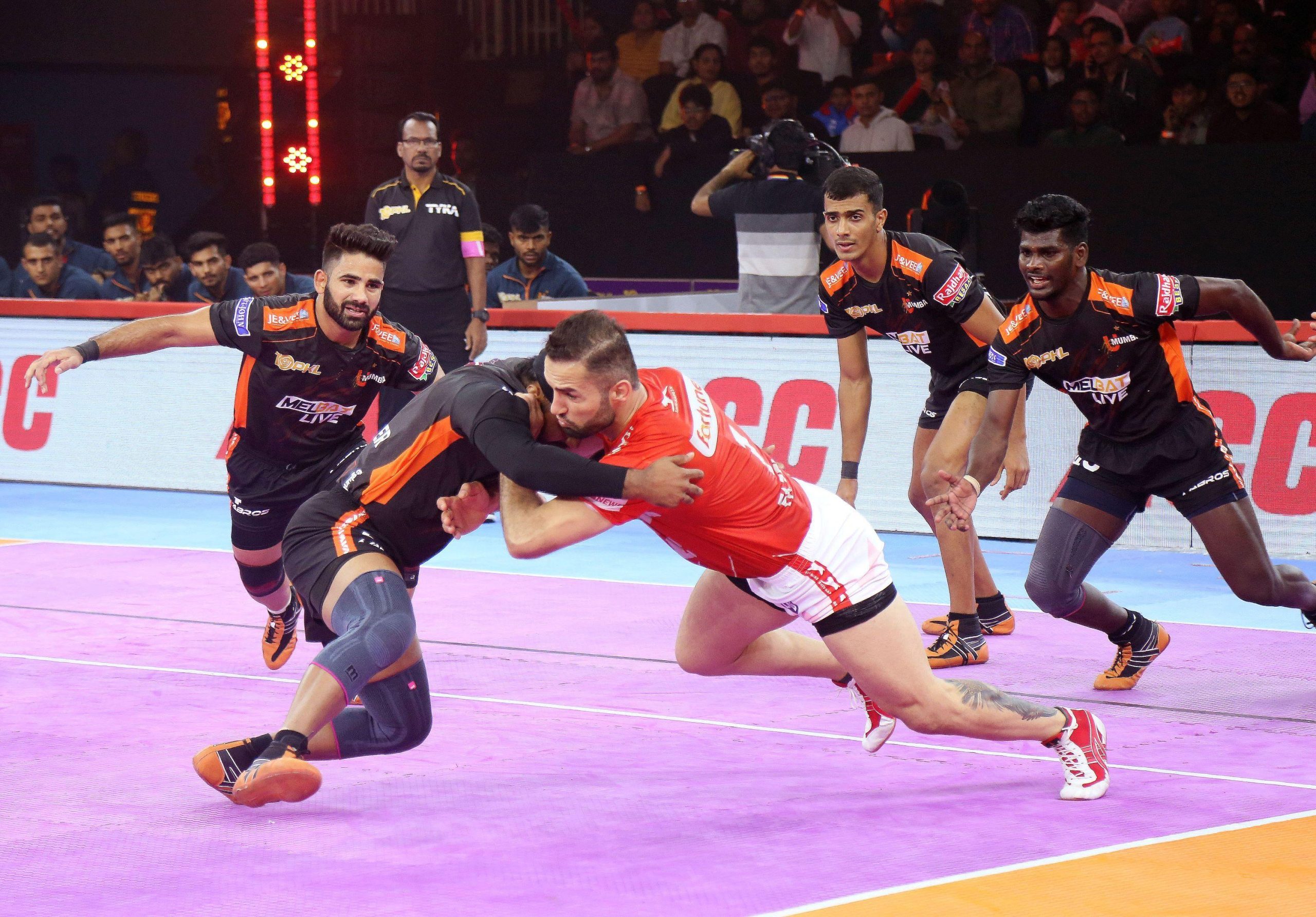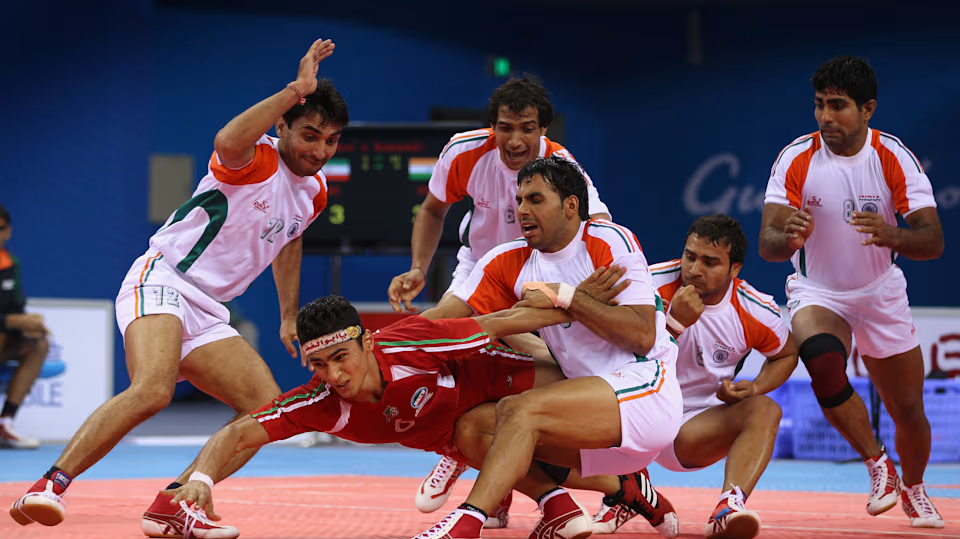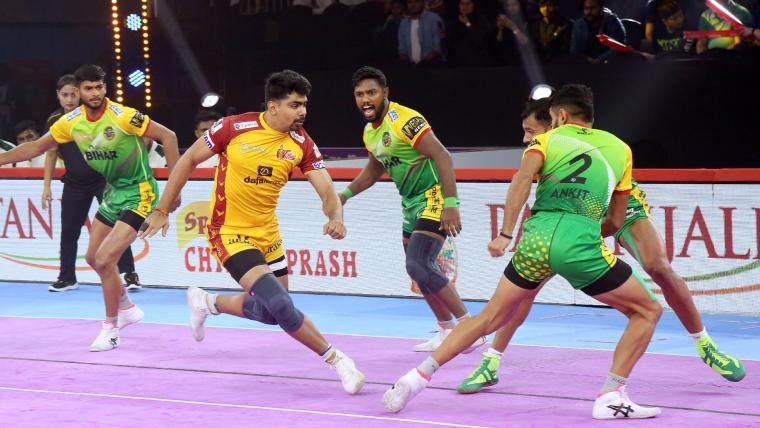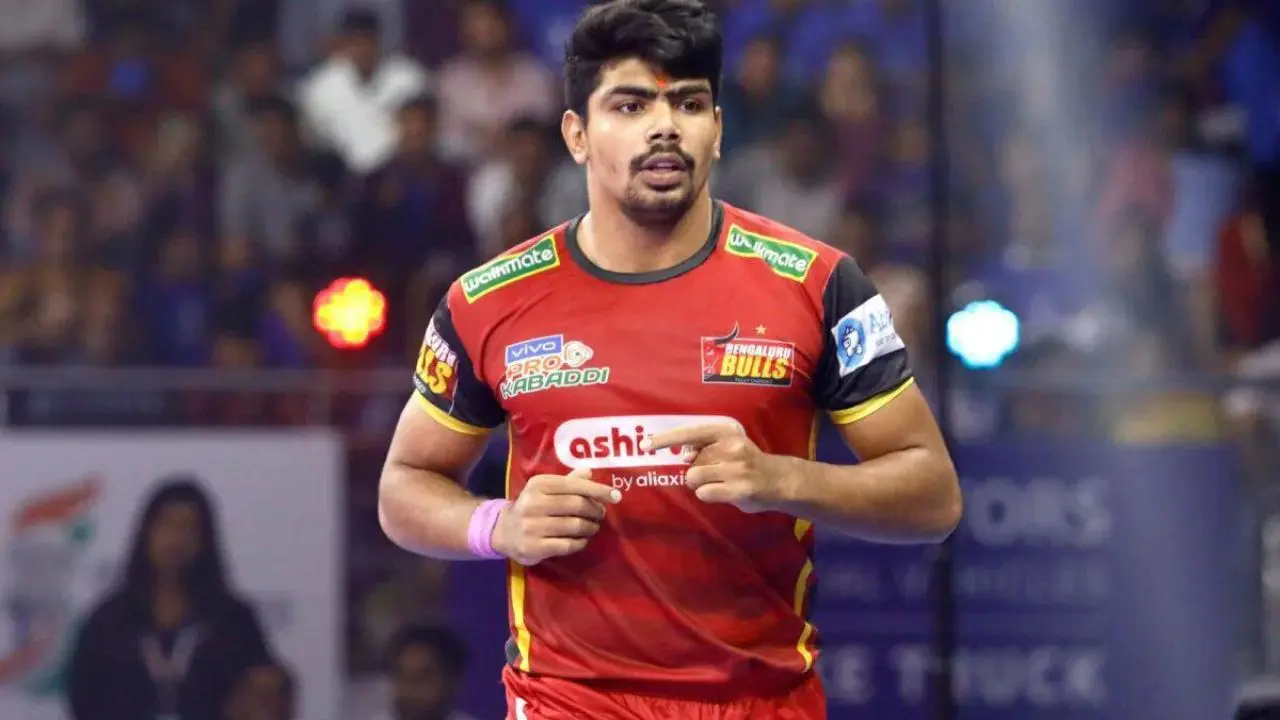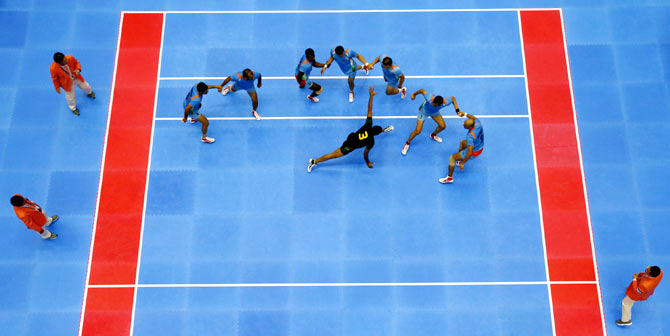Kabaddi is a dynamic sport that requires players to perform at their best in both offensive and defensive roles. While specialists in raiding and defending are essential, all-rounders play a crucial part in creating balance and versatility within the team. All-rounders bring unique skills that allow them to contribute in all areas of the game, making them valuable assets for any team. In this article, we will discuss the importance of all-rounders in Kabaddi and how their versatility contributes to a team’s overall success.

- The All-Rounder’s Role in Kabaddi
An all-rounder in Kabaddi is a player who can effectively perform both raiding and defending roles. Their ability to switch between these two roles during a match makes them one of the most flexible and strategic players on the team.
Key Characteristics of All-Rounders:
- Dual-Skill Capability: All-rounders are capable of raiding with finesse and defending with precision. Their ability to perform in both areas makes them invaluable when the team needs to adjust strategies quickly.
- Versatility: All-rounders can adapt to changing game situations. Whether it’s a high-pressure raid or a critical tackle, all-rounders can contribute to both offensive and defensive efforts.
- Team Support: All-rounders provide vital support to both the raiding and defending teams. They fill gaps, provide energy when needed, and balance the team’s overall strengths and weaknesses.
- How All-Rounders Impact the Team’s Strategy
All-rounders give teams the flexibility to rotate players, allowing for strategic substitutions and adjusting to the opponent’s tactics. Their presence often enables teams to balance their offensive and defensive capabilities without relying too heavily on one type of player.
Strategic Benefits of All-Rounders:
- Rotating Between Roles: A team with all-rounders can rotate players between raiding and defending roles, maintaining a fresh and dynamic approach throughout the match. This adaptability can catch opponents off guard and help the team avoid being predictable.
- Tactical Flexibility: All-rounders allow teams to easily shift between aggressive offensive strategies and more defensive-focused ones. When a raider is struggling, an all-rounder can step in and create new opportunities, or when the defense is under pressure, they can stabilize the situation by adding a fresh defender.
- Backup Support: All-rounders provide backup for both the raiders and the defenders, ensuring that the team can keep up its intensity even if one area of play falters. They can also contribute when another player is out or tired, offering a seamless replacement.
Advanced Tips for Using All-Rounders Effectively:
- Adapt Based on Opponent’s Strengths: Use all-rounders to counter specific opponents. For example, if the opposing team has strong raiders, an all-rounder with strong defensive skills can help neutralize their offensive power.
- Take Advantage of Fatigue: All-rounders can be rotated into roles depending on who is most fatigued, ensuring that fresh players are always available to carry out key tasks at critical moments.
- Top All-Rounders to Watch in Kabaddi
Many of the most successful Kabaddi players are all-rounders, as their versatility gives them the ability to influence the game in various ways. These players can turn the tide of a match through their adaptability and performance in both areas of play.
Notable All-Rounders:
- Manjeet Chhillar: Manjeet is one of the most well-known all-rounders in Kabaddi. He has the ability to perform critical raids and make game-changing tackles. His leadership qualities and adaptability make him a key player for any team.
- Ravinder Pahal: Known for his solid defensive skills and occasional raids, Ravinder Pahal is a player who shines as an all-rounder. His ability to read the game and make tactical decisions helps his team on both offense and defense.
- Deepak Niwas Hooda: Deepak’s combination of quick raids and efficient defending make him one of the best all-rounders in Kabaddi. His ability to switch seamlessly between the two roles makes him a valuable asset during every phase of the match.
Advanced Tips for Evaluating All-Rounders:
- Versatility in Different Conditions: The best all-rounders are able to adapt to different game conditions, such as varying team strategies or changes in pace. Look for players who can stay effective regardless of the game’s flow.
- Consistency in Both Roles: Evaluate all-rounders based on their ability to contribute equally in both raiding and defending, not just during moments of excitement, but consistently throughout the match.
- The Importance of All-Rounders for Team Balance
A Kabaddi team’s balance is essential for success. If a team relies too heavily on one area—whether raiding or defending—it becomes predictable and vulnerable. All-rounders help provide this balance, ensuring that the team is never too focused on one area of the game.
Benefits of Balanced Kabaddi Teams:
- Minimized Weaknesses: All-rounders help teams cover their weaknesses. If a raider struggles against a tough defense, an all-rounder can step in and change the dynamics of the match.
- Maintaining Consistency: Having all-rounders ensures that both offensive and defensive roles are always covered effectively, allowing the team to maintain consistency throughout the match.
- Avoiding Over-Reliance on Specific Players: All-rounders prevent teams from becoming too reliant on a few star players. They provide depth to the squad and allow other players to shine when needed.
Advanced Tips for Maintaining Balance:
- Team Coordination: Ensure that all players understand their roles and can support each other. This will allow all-rounders to step in and take over without disrupting the team’s flow.
- Maximize Player Potential: Use all-rounders to bring the best out of other players. When an all-rounder steps in, their presence should elevate the performance of the entire team.
- Developing All-Rounders in Kabaddi
While some players naturally excel as all-rounders, others can develop these skills through targeted training and practice. To become a successful all-rounder, a player must hone both their raiding and defending skills to a high level.
Training Tips for Aspiring All-Rounders:
- Balanced Practice: Dedicate equal time to both raiding and defending during practice. This ensures that players develop skills in both areas, making them versatile and effective on the mat.
- Tactical Awareness: All-rounders need to be aware of the game’s flow and adapt quickly. Developing this awareness through match simulations and tactical drills can help improve decision-making.
- Physical Conditioning: All-rounders need to be physically fit to perform at a high level in both attacking and defensive roles. Focus on conditioning exercises that improve stamina, strength, and agility.
